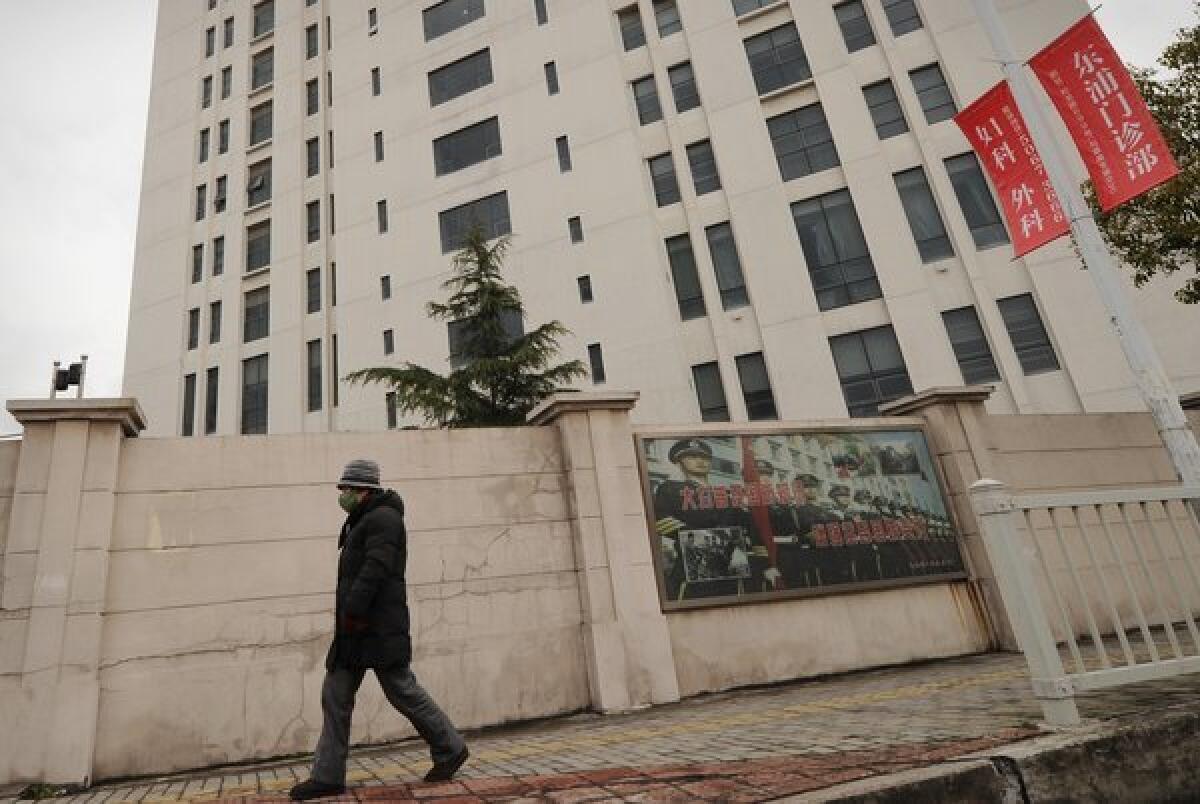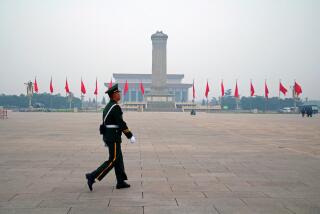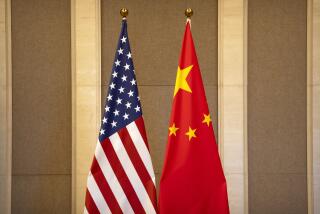From the archive: China dismisses U.S. accusations of cyber-spying

BEIJING -- China on Tuesday dismissed as groundless the Pentagon’s latest and most direct accusation yet that Beijing is engaging in cyber-spying on the U.S. government and businesses to acquire information to strengthen its military capabilities and technology industries.
Responding to the Pentagon’s annual report on China’s military, released a day earlier, a Foreign Ministry spokeswoman insisted that Beijing was “strongly against any form of hacking activities,” and said China was willing to start a “rational and constructive dialog” with the United States on Internet security issues.
“This kind of baseless accusations and endless finger-pointing would only hurt the efforts and environment for such a dialog,” said the spokeswoman, Hua Chunying.
Beijing’s stiff reaction was expected as it has repeatedly denied charges of cyber-espionage, which has become a growing concern in Washington. U.S. officials have recently stepped up complaints about Chinese cyber-warfare as more large-scale hacking attacks have been traced to China.
The latest report is explicit in stating that the U.S. was being “targeted for intrusions, some of which appear to be attributable directly to the Chinese government and military.”
“China is using its computer network exploitation (CNE) capability to support intelligence collection against the U.S. diplomatic, economic and defense industrial base sectors that support U.S. national defense programs,” the report said.
It noted that modernization efforts by China’s People’s Liberation Army are aimed at “attaining the capability to fight and win potential regional conflicts, including those related to Taiwan.”
A Chinese military analyst connected with the PLA called the Pentagon’s charges “irresponsible,” saying that the Chinese government and military have never sanctioned hacking activities and that both China and the U.S. were victims of cyber-crimes.
“Although it is common sense that you cannot determine sources of cyber-attacks only through IP addresses, some people in the Pentagon still prefer believing they are from China as they always bear a sense of rivalry,” Wang Xinjun, a researcher with the Academy of Military Sciences, was quoted as saying Tuesday by the New China News Agency. “It is an allegation based on presupposition,” he said.
U.S. intelligence officials have long warned that Chinese cyber-warfare activities present a threat to U.S. security and economic interests. Earlier this year, security firm Mandiant Corp. of Alexandria, Va., produced a report that identified an office building in the financial center of Shanghai as the origin of multiple cyber-attacks against dozens of U.S. and Canadian companies.
ALSO:
Gas tanker truck explodes near Mexico City; 19 dead
Bombs kill 15 at campaign rallies in northwest Pakistan
Spanish princess cleared of suspicion in corruption probe
More to Read
Sign up for Essential California
The most important California stories and recommendations in your inbox every morning.
You may occasionally receive promotional content from the Los Angeles Times.











